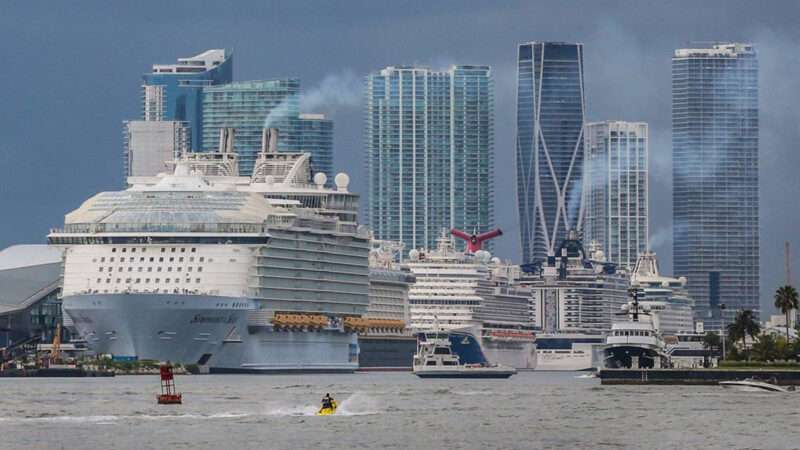
In another sign that the cruise industry is transitioning to a post-COVID operating model, Royal Caribbean Group and Carnival Cruise Line, the industry's two largest cruise lines, announced last week they will loosen testing requirements for vaccinated passengers.
Beginning August 4, vaccinated passengers on Carnival company sailings that last less than six days will no longer be required to provide a negative PCR or antigen test result before boarding vessels. A similar policy will take effect on Royal Caribbean company sailings on August 8. In a Facebook post, Royal Caribbean CEO Michael Bayley also shared that unvaccinated guests who have recovered from COVID in the last 90 days will be allowed to sail with the company, marking a departure from existing policies, which had barred most unvaccinated people from going on cruises. This major decision from the industry's main cruise companies comes as smaller cruise lines, including MSC Cruises, Azamara Cruises, and others, have abandoned testing and vaccination requirements altogether (if not required by ports).
For longer sailings, Royal Caribbean and Carnival will still require passengers to test, though they have more flexibility with testing, able to provide a test result from up to three days before the departure date. Additionally, unvaccinated passengers will still be required to test before all voyages, though they will no longer be required to test at the cruise terminal on the day of departure.
These recent policy changes come after the Centers for Disease Control and Prevention (CDC) announced the end of its COVID-19 monitoring program for cruise voyages leaving and sailing to the United States on July 18.
In the early stages of the pandemic, a massive outbreak on the Diamond Princess cruise ship left the ship stranded after Japan's government initially refused to take the ship and its passengers in. Later on, the Zaandam and Rotterdam, two Holland America cruise ships, became global pariah ships that governments, and some U.S. states, refused to let dock. Eventually, Florida Governor Ron DeSantis, a Republican, was forced to acquiesce by the Trump administration and let the ships dock at Port Everglades in Fort Lauderdale.
From March 2020 to October 2020, cruise ships were prohibited from sailing to and from the United States under the CDC's no-sail order. After much lobbying, the federal government lifted the no-sail order, allowing cruise ships to set sail again in fall 2020, albeit under intense regulations and restrictions. Cruise lines decided to wait until summer 2021 to restart longer voyages. However, the return to cruising once again became a political battlefield as DeSantis attempted to prevent privately owned cruise lines from implementing a vaccine mandate. A federal judge, however, sided with the cruise lines, saying Florida had overstepped its constitutional authority.
Until July 18, cruise ships were heavily scrutinized by CDC officials, who tracked rates of COVID-19 transmission on individual sailings among crew members and passengers and published regular public reports of COVID-19 rates aboard ships. If cases reached a certain level on board ships, the CDC would investigate the outbreak's origins and prescribe corrective measures for future sailings. Despite occasional large outbreaks, especially during the first wave of omicron, ships were largely able to contain the spread of disease on board and complete most voyages with few issues. Ships will continue reporting COVID data to the CDC, but will be subject to fewer restrictions than they were before.
The post Cruise Lines Relax COVID Testing and Vaccination Policies appeared first on Reason.com.







